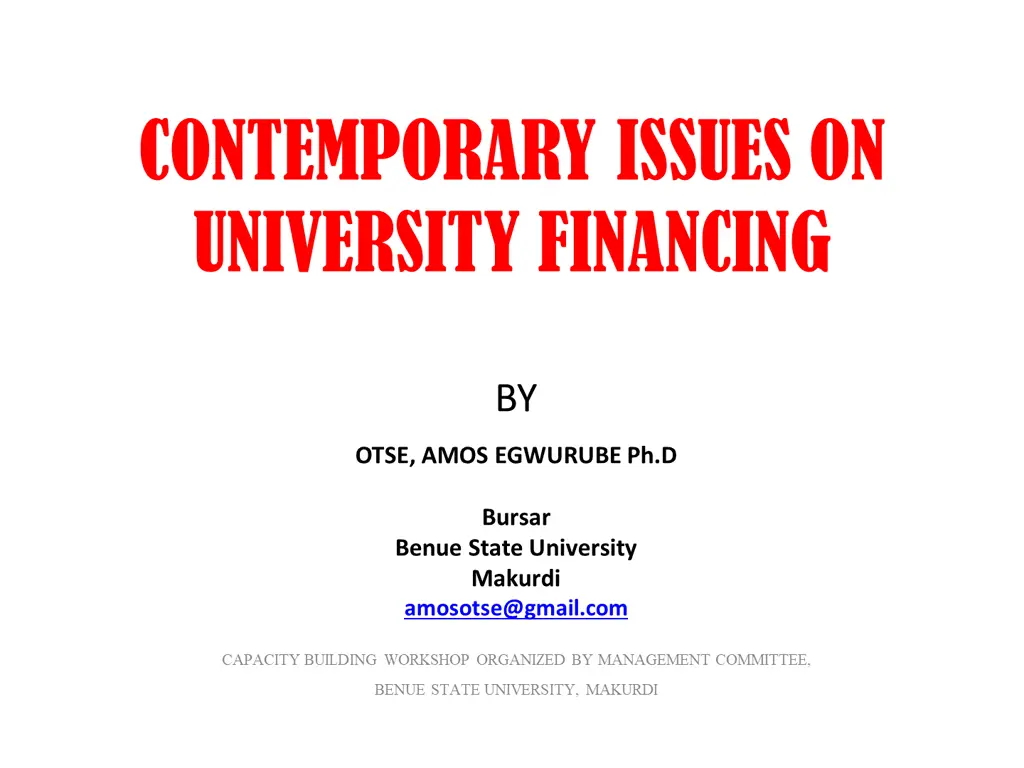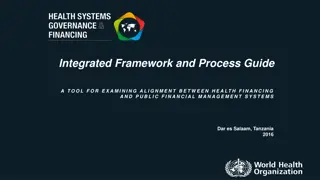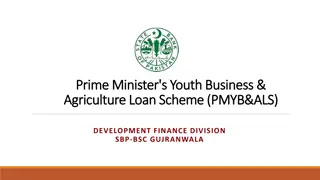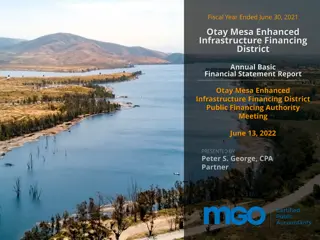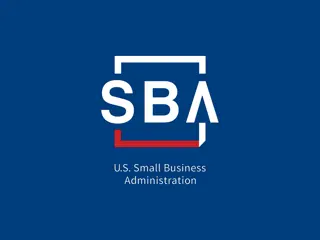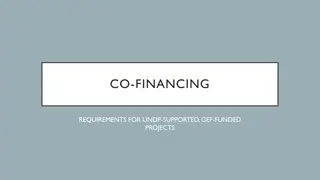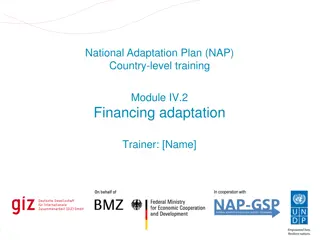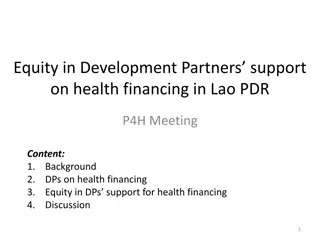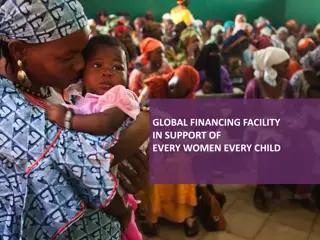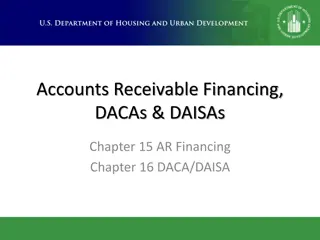Contemporary Issues on University Financing
The challenges and alternative strategies for financing universities in Nigeria. Learn about financial policies, funding sources, and ways to ease the financial burden on students.
Download Presentation

Please find below an Image/Link to download the presentation.
The content on the website is provided AS IS for your information and personal use only. It may not be sold, licensed, or shared on other websites without obtaining consent from the author.If you encounter any issues during the download, it is possible that the publisher has removed the file from their server.
You are allowed to download the files provided on this website for personal or commercial use, subject to the condition that they are used lawfully. All files are the property of their respective owners.
The content on the website is provided AS IS for your information and personal use only. It may not be sold, licensed, or shared on other websites without obtaining consent from the author.
E N D
Presentation Transcript
CONTEMPORARY ISSUES ON UNIVERSITY FINANCING BY OTSE, AMOS EGWURUBE Ph.D Bursar Benue State University Makurdi amosotse@gmail.com CAPACITY BUILDING WORKSHOP ORGANIZED BY MANAGEMENT COMMITTEE, BENUE STATE UNIVERSITY, MAKURDI
WORKSHOP COURSE OUTLINE 1. Objective of the workshop 2. Introduction 3. What is finance? 4. Quest for fund 5. Sources of fund 6. Alternative strategies or funding models 7. Contemporary issues on University financing 8. Financial policies in Nigeria 9. Types of funds available 10.To ease financial burden on students 11.Conclusion
OBJECTIVE OF THE WORKSHOP The objectives of the workshop on Strategies for Reinvigorating Academic and Administrative Excellence in Benue State University is to: i. Understand the term finance and financing ii. Identify sources of funding and alternative strategies of funding iii. Evaluate the economy and appreciate the hard times associated with University Governance iv. Enable University managers in planning and control of activities and resources
OBJECTIVE OF THE WORKSHOP Cont. v. Evaluate some contemporary issues in University financing vi. Understand financial policies and nature of university funds
INTRODUCTION In recent times in Nigeria, following the removal of fuel subsidy, the national economy took a turn for the worst in terms of short- term hardship. One of the most hit is the educational sector with reprisal effect. The educational sector reportedly contributed 6.6% of GDP been total expenditures on education institutions in Chile & Norway; 6.2% for New Zealand & Israel; 6.1% United Kingdom; 6.0% United States of America and 5.4% for Nigeria World Bank, 2023)
INTRODUCTION Cont. Funding has been the major issue militating against educational growth and quality in Nigeria. The role of education is critical to economic development & promote by government: Social investment Key to improved R&D Enhance critical thinking, innovation & invention Must be priority of any forward-looking government.
WHAT IS FINANCE? The word finance is an Anglo-French word meaning to end as well as to pay . Finance is an all-encompassing term that covers resource and money management for individuals, public institutions and businesses . Financing is the process of providing funds for business activities, making purchases or investing. Financing is about structuring different financial flows to achieve a common result.
QUEST FOR FUND Under-funding and over-reliance on government funds are the problems in university governance in Nigeria. Attempting to improve the funding situation, Universities are now engaged in: Increase students enrollment figures which will eventually communicate to more fund; Reduction in enrollment criteria and benchmark and Poor teaching and research quality
SOURCE OF FUNDING Conventional sources of funding the Universities in Nigeria: Government subvention or Grants User Charges or Other Charges Donations Endowment fund
ALTERNATIVE STRATEGIES OR FUNDING MODELS Commercialization of innovation Research funding or grants Alumni foundations to enhance donor supports Re-introduction of tuition Students loans or grants scheme Stabilization fund or Initiated special funds
CONTEMPORARY ISSUES IN UNIVERSITY FUNDING Introduction of Tuition (considered as potentially untapped source of fund - Aina, 2002); Students loans scheme; Innovation commercially-oriented focus; Implicit Government position on University funding (Government thinking e.g. Centralized IGR & current financing policy trend e.g. professional bodies) Financial policy interpretation issues.
FINANCIAL POLICIES IN NIGERIA The under listed policies are the legal and regulatory framework for public sector accounting and financial management as followings: The Nigerian Constitution of 1999 Finance (Control and Management), Act 2020 Audit Ordinance (or Act) 1956 Fiscal Responsibility Act (FRA) 2007 Public Procurement Act (PPA) 2007 Freedom of Information Act (FOI) 2011 The Financial Regulations (2009) The Nigerian Extractive Industries Transparency Initiative Act 2007. The Federal Treasury Accounting Manual Treasury Circulars The Procurement Procedures Manual: Issued by the Bureau of Public Procurement (BPP).
TYPES OF FUNDS AVAILABLE Types of Funds in Nigeria: Aside the broad categorization of funds, different types of funds exist in Nigeria as listed below: i. Consolidated revenue fund ii. Contingency Fund iii. Contingency Reserve Fund iv. Internally Generated Funds v. Capital Project Fund vi. National Loans Fund vii. Trust and Agency Fund viii. Debt Service Fund/Sinking Fund ix. Counterpart Fund x. Intra-governmental Service Fund xi. Revolving Fund xii. Local Government Fund
TO EASE FINANCIAL BURDEN OF STUDENTS Community participation 1% Local Government Fund to the University Private Enterprise exploring option of private sector involvement in sponsorship Work study programme engagement of students during work-free hours Public Private Partnership: Specialized institutions to provide and manage laboratories Outsource ICT
CONCLUSION The need for managers of Universities to think- out-of-the-box, share knowledge and apply skills to overcome funding challenges cannot be over emphasized. The traditional roles of the University, as it is in Nigeria today, will change. University management must continue to employ fiscal discipline and create a systems thinking entity. The University must rethink it approach to problem solving, expand it scope of influence and take advantage of its environmental peculiarities.
CONCLUSION cont. In 2002, Olabisi Aina, a lecturer in OAU, Ile-Ife in her work titled Alternative Modes of Financing Higher Education in Nigeria and Implications for University Governance noted that introduction of Tuition is potentially an untapped source of University financing. The study noted that the quest to improve university funding may lead to becoming too commercially oriented which are diversionary and misplaced academic priorities and achievement.
Thank you for your attention
